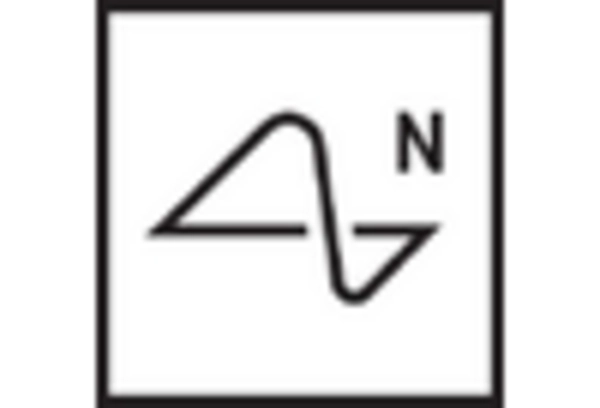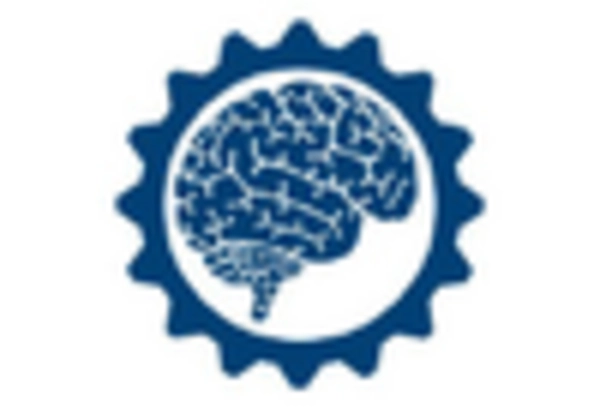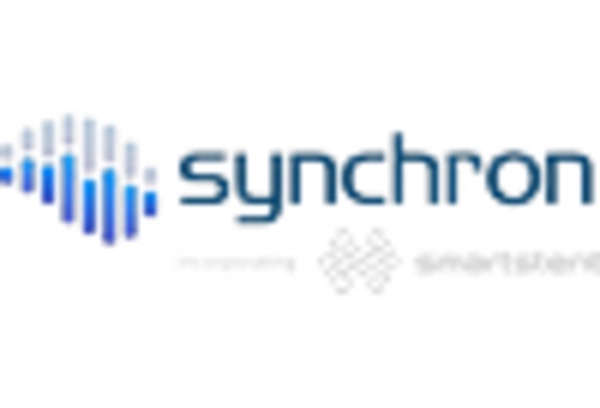Growing Aging Population
The brain-computer interface market in Japan is poised for growth due to the country's rapidly aging population. As the demographic landscape shifts, there is an increasing prevalence of age-related neurological disorders, such as dementia and Parkinson's disease. As the demographic landscape shifts, there is an increasing prevalence of age-related neurological disorders, such as dementia and Parkinson's disease. This trend creates a pressing need for innovative solutions that can enhance the quality of life for elderly individuals. By 2025, it is estimated that over 30% of the Japanese population will be aged 65 and older, significantly impacting healthcare demands. Brain-computer interfaces offer promising avenues for monitoring cognitive health and providing assistive technologies for the elderly. This demographic shift indicates a substantial market opportunity for developers and researchers in the brain computer-interface market, as they seek to address the unique challenges faced by an aging society.
Public Awareness and Acceptance
The brain-computer interface market in Japan is witnessing a rise in public awareness and acceptance of neurotechnological solutions. Educational campaigns and media coverage are playing a crucial role in demystifying brain-computer interfaces and their potential applications. Educational campaigns and media coverage are playing a crucial role in demystifying brain-computer interfaces and their potential applications. As of 2025, surveys indicate that approximately 60% of the population is open to the use of brain-computer interfaces for various purposes, including healthcare and entertainment. This growing acceptance is likely to encourage investment and innovation within the market, as companies seek to meet the evolving needs of consumers. Furthermore, increased public awareness may lead to more robust regulatory frameworks that support the safe and ethical use of brain-computer interfaces. The trend of public awareness and acceptance is expected to be a driving force in the expansion of the brain computer-interface market in Japan.
Rising Demand for Neurotechnology
The brain-computer interface market in Japan is experiencing a notable surge in demand for neurotechnology solutions. This demand is driven by an increasing awareness of mental health issues and the potential for brain-computer interfaces to assist in therapeutic applications. This demand is driven by an increasing awareness of mental health issues and the potential for brain-computer interfaces to assist in therapeutic applications. As of 2025, the market is projected to grow at a CAGR of approximately 15%, reflecting a growing acceptance of these technologies in clinical settings. The integration of neurotechnology into rehabilitation programs for stroke patients and individuals with neurological disorders is particularly noteworthy. This trend indicates a shift towards personalized medicine, where brain-computer interfaces can provide tailored therapeutic interventions, thereby enhancing patient outcomes. The rising demand for neurotechnology is likely to propel innovation and investment in the brain computer-interface market, fostering a more robust ecosystem for development and application.
Advancements in AI and Machine Learning
The brain computer-interface market in Japan is significantly influenced by advancements in artificial intelligence (AI) and machine learning technologies. These innovations are enhancing the capabilities of brain-computer interfaces, allowing for more accurate interpretation of neural signals. As AI algorithms become more sophisticated, they can process complex data from brain activity, leading to improved user experiences and functionality. In 2025, it is estimated that AI-driven solutions will account for over 30% of the market, highlighting the critical role of technology in driving growth. Furthermore, the synergy between AI and brain-computer interfaces is paving the way for applications in gaming, education, and assistive technologies, thereby expanding the market's reach. This trend suggests that continued investment in AI research will be essential for the evolution of the brain computer-interface market in Japan.
Increased Investment in Healthcare Innovation
The brain-computer interface market in Japan is benefiting from increased investment in healthcare innovation. The Japanese government has recognized the potential of brain-computer interfaces to revolutionize patient care and is actively funding research initiatives. The Japanese government has recognized the potential of brain-computer interfaces to revolutionize patient care and is actively funding research initiatives. In 2025, public and private sector investments in healthcare technology are projected to exceed ¥500 billion, with a significant portion allocated to brain-computer interface development. This influx of capital is likely to accelerate research and development efforts, leading to the introduction of new products and services. Moreover, partnerships between academic institutions and industry players are becoming more common, fostering a collaborative environment that encourages innovation. The increased investment in healthcare innovation is expected to drive the growth of the brain computer-interface market, positioning Japan as a leader in this emerging field.
















